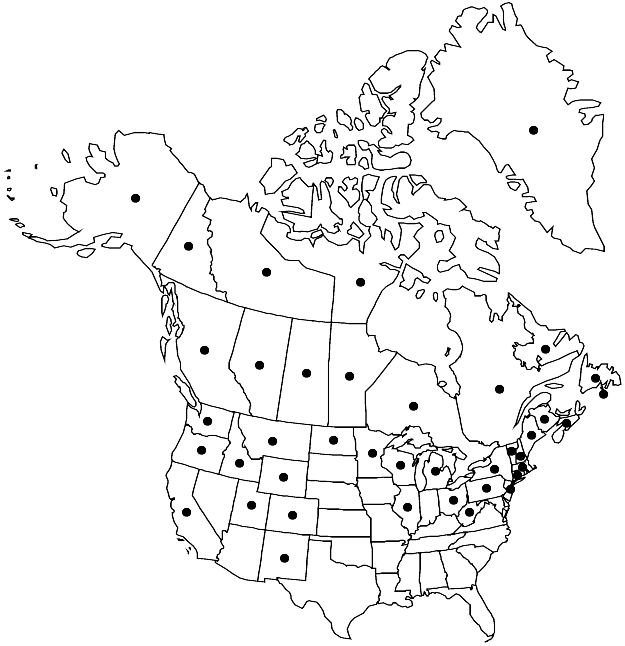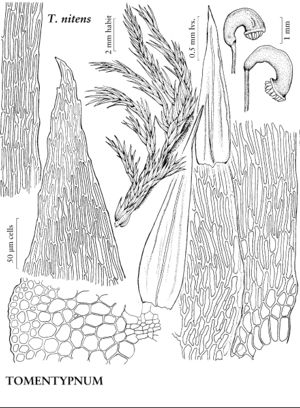Tomentypnum nitens
Deutsche Bot. Monatsschr. 22: 82. 1911.
Stems with rhizoids in 1 (or 2) transverse rows on stem just below leaf insertion and on stem leaf proximal abaxial costa surface. Leaves straight, not or little twisted distally, tapering from base to apex, widest at base; apex long-acuminate. Seta reddish, darker proximally, lighter distally, 3–4.5(–5) cm, slightly twisted when dry, straight to somewhat flexuose. Calyptra naked.
Phenology: Capsules mature early-mid summer.
Habitat: Calcareous to intermediately mineral-rich habitats, mesotrophic fens, in association with other calciphiles, with mosses such as Paludella squarrosa and Aulacomnium spp.
Elevation: low to high elevations
Distribution

Greenland, St. Pierre and Miquelon, Alta., B.C., Man., N.B., Nfld. and Labr., N.W.T., N.S., Nunavut, Ont., Que., Sask., Yukon, Alaska, Calif., Colo., Conn., Idaho, Ill., Maine, Mass., Mich., Minn., Mont., N.H., N.J., N.Mex., N.Y., N.Dak., Ohio, Oreg., Pa., Utah, Vt., Wash., W.Va., Wis., Wyo., n, c Europe, n Asia, Atlantic Islands (Iceland).
Discussion
Tomentypnum nitens is common and widespread across boreal and arctic areas of the Northern Hemisphere, reaching the high Arctic and extending south to New Mexico in high mountains. In arctic-alpine conditions, a form is often encountered characterized by a stem without rhizoids, leaves closely appressed, and branches straight, erect, and close to the stem.
Selected References
None.
